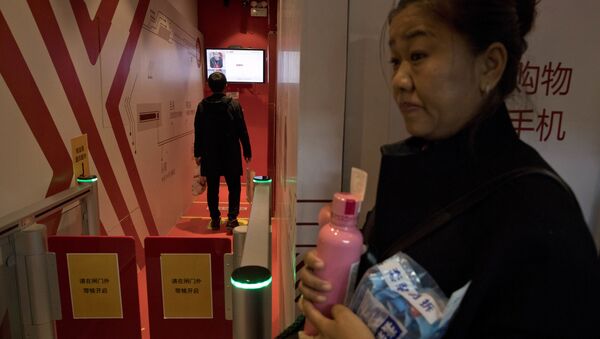The heavily-promoted retail convulsion began on midnight Friday and, within the first two minutes, transactions had passed the $1 billion mark. In a little over an hour, that number had jumped to $10 billion, Reuters reported.
The 2017 figures were a 39 percent increase compared to previous years. Many brands, including Nike, Xiaomi and Uniqlo, chalked up over $15 million in sales.
"In terms of scale it just dwarfs any other event out there," gushed Ben Cavender with the China Market Research Group.
To increase sales, Alibaba hosted a gala that included stars like American actress Nicole Kidman and American rapper Pharrell Williams. According to the online retail behemoth's chief executive officer Daniel Zhang, the company wants the event to reach global scales and is hoping that local promotional parties will see shoppers from other countries increase their involvement.
Now that shoppers have virtually filled and emptied their online shopping carts, delivery, warehouse and fulfillment workers — as well as the myriad robot slaves employed by the massive retail extravaganza — are feverishly working to deliver millions of packages over the next six days.
"On the back of 11-11, we will probably have to distribute north of 700 million packages," Alibaba President Mike Evans enthused, Bloomberg reported.
"That is a massive, massive number of packages that requires a robust logistics network both in China and outside of China, and we will continue to invest in that business, and by moving to a controlling position, we will be able to ensure the right degree of quality," the business leader raved.
"This is a big event for China, for the Chinese economy," rhapsodized Joseph Tsai, Alibaba's co-founder and vice chairman.
"On Singles' Day, shopping is a sport, it's entertainment," Tsai tellingly observed.
According to Tsai, the disposable income of China's "over 300 million middle-class consumers" is assisting immensely in Alibaba's profitability.
"This powerful group is propelling the consumption of China," he declared.
In 2016, however, the US Securities and Exchange Commission began a probe into Alibaba's accounting practices, claiming that the way the company handles its numbers is not clear. That investigation remains currently underway.



